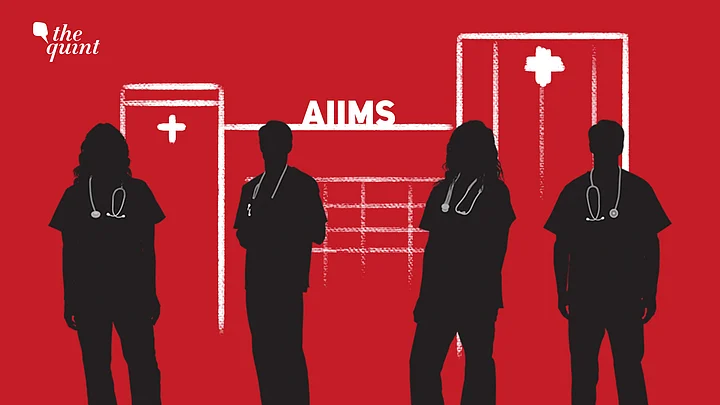When foreign resident doctors at Chandigarh’s Post Graduate Institute of Medical Education and Research (PGIMER) were told that they would be paid a stipend for the first time, their counterparts at New Delhi’s All India Institute of Medical Sciences saw a ray of hope.
The circular issued to PGIMER stated:
“Ministry of Health and Family Welfare, New Delhi, has intimated that a decision for initiating necessary action for payment of stipend to the Foreign National students by AIIMS, New Delhi, PGIMER, Chandigarh and JIPMER, Puducherry has been taken in the Ministry.”
The circular also added that Prime Minister Narendra Modi had conveyed instructions to complete the process by 16 June 2018. Prior to this circular, foreign residents at three Institutes of Importance (AIIMS, PGIMER & JIPMER) were not entitled to a stipend.
But while the PGIMER foreign doctors have started getting their stipend, at par with local doctors, the 60 foreign Resident Doctors at Delhi’s AIIMS are yet to receive these benefits.
Why Has AIIMS Not Followed Suit?
The problem at AIIMS stems from the category under which foreign resident doctors are admitted, explains Debasish Deb, a junior resident doctor from Nepal. “At AIIMS, foreign resident doctors are admitted under a category that also includes sponsored students from India.
Since the circular issued by the Health Ministry allows foreign resident doctors to draw a stipend at par with Indian residents and specifically bars sponsored students from doing so, AIIMS has been caught in a fix.”
While AIIMS has been caught in a web of technicalities, it is the foreign resident doctors – a majority of them from neighbouring Nepal and Bhutan – who have been left in the lurch. Most of these residents are pursuing a postgraduate MD course and are generally in 26-35 age group.
This means that a substantial number of foreign residents face the pressure of running a family in a costly city like Delhi, without receiving any pay for the same work that Indian resident doctors are paid for.
Generally, a junior resident doctor at AIIMS receives about Rs 80,000 per month as stipend, whereas a senior resident fetches around Rs 1,00,000 per month.
All Work, No Pay
Thirty-five-year-old Pankaj Nata hails from Nepal’s Mahendranagar and is enrolled as a Junior Resident at AIIMS’ Anesthetic Department. He’s been renting an apartment in the city with his wife and two sons – one of whom was just born a couple of days ago. But Nata has not been able to celebrate the arrival of a new member in the family. He says:
“I have got my son admitted to a small school near our house as I could not afford a decent one. We have families to run and rent to pay. Each month, we have to spend at least Rs 60,000 to survive in an expensive city like Delhi.”
With four mouths to feed and zero pay from AIIMS, Nata has slowly been breaking into his family’s savings. Out of the Rs 60,000 his family needs every month, Nata takes out about Rs 30,000 from his savings account, while interest on the rest of his savings fetches about Rs 30,000 more.
Having recently lost his father to cancer, Nata fears losing all his family’s savings, if things remain the same.
‘Feel Ashamed to Ask Parents for Money’
Each month, Anjana, a foreign resident doctor from Nepal, has to turn to her ageing parents back home for the Rs 30,000 that she needs to meet daily expenses in the national capital. While the Junior Resident spends Rs 15,000 on food, rent and other expenses, almost an equivalent amount is spent on other educational resources.
Anjana, like Nata, has been enrolled in an MD course at AIIMS, which means that most of their education takes place on the job as junior resident doctors. “We do the same work as our Indian counterparts, treat the same patients, but receive no pay.
“Women of my age are expected to earn and support our families. But I have been forced to take money from my parents, when my Indian friends and even those in Nepal are sending money back home. This feels shameful.”Anjana
She points out that when Indian resident doctors go on strike, it is the foreign residents who manage emergency services across different departments. “Sometimes during strikes, we are required to work for upto 30 hours at a stretch.” But the lack of pay, adds Anjana, has not dented their spirit to learn and serve.
“We always do our best and don’t let the lack of pay hinder our service to patients,” she adds, before hurrying hurrying back to her job.
Uncertainty at JIPMER
While the situation for foreign resident doctors at AIIMS remains grim, those at JIPMER, Puducherry say their situation isn’t any better. According to Suman, a resident doctor from Nepal, the Puducherry institution has about 23 foreign resident doctors and none of them have received any stipend so far.
“When we raised the PGIMER notification in our own institution, they asked us too many questions as to why we want a stipend. We’ve had two meetings and will have one more on 26 October,” he said.
When asked about what foreign residents at JIPMER feel about the possible outcome of these meetings, Suman said that the since the institution is an autonomous body, the final decision will be taken by the governing body.
“The governing body’s decision will be final. We have no clue about what they will decide,” said Suman.
(The Quint has reached out to the AIIMS administration and will update this story once a response has been received.)
(At The Quint, we question everything. Play an active role in shaping our journalism by becoming a member today.)
